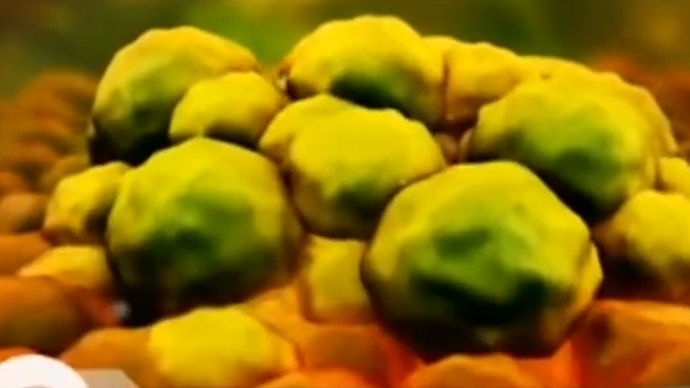Cancer breakthrough: Kansas researchers testing compound that inhibits tumors

It’s not a cure just yet, but a new treatment being tested at the University of Kansas is holding out for the promise of defeating cancer. A combination of chemicals has been successfully blocking a protein that cancerous cells need to replicate.
Dr. Liang Xu and his team of scientists have spent three years testing a chemical cocktail that inhibits a naturally occurring protein called HuR. Cancerous cells use HuR to replicate uncontrollably. The inhibitor was tested on lab cultures and in mice, and has been successful against the types of cancers affecting the tissues of the brain, breast, colon, lung, ovaries, pancreas and prostate.
The researchers have published their findings in ACS Chemical Biology, a journal published by the American Chemical Society.
Speaking to RT, Dr. Xu called the inhibitor a “very promising” treatment “that could potentially lead to a new therapy for cancer.”
The ultimate goal of Dr. Xu’s research team is to develop a treatment that would root out the cancer “stem cells,” the source of tumors that may go dormant following chemotherapy or radiation treatment only to return months or years down the road. The treatment aims to “make sure the tumor will never come back again,” Dr. Xu said.
READ MORE: Scientists target 'universal' protein to treat brain cancer and Ebola
Working at the Department of Cancer Biology of the KU Medical Center, the researchers plan to spend the next five years running hundreds of additional tests, finding the best combination of chemicals for the eventual anti-cancer drug. Currently the team is testing a third generation of the inhibitor treatment, much more potent than the previous cocktails. The treatment is still at least a decade away, though.
“2025 would be a best case scenario,” Xu told the local media.
Cancer kills approximately 1,600 people every day in the US alone.












